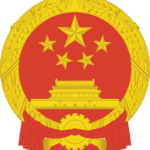Gefira 45 draws the reader’s attention to the Middle Kingdom and the challenge that it has thrown down for the United States to take up. The Cold War ended, anther cold war is in the making. The Land of the Free has vanquished the Soviet Union by sleight of hand: without a shot being fired or a missile being launched. Can the United States do the same with China? The USSR was a socialist state and so is China, at least according to Beijing’s declarations, because for all practical purposes this gigantic Asiatic tiger favours capitalism. The skyline of many a Chinese city resembles that of Manhattan, the yuan has been added to the SDR basket, while Chinese economic and increasingly so political and military leverage is on the rise. The Middle Kingdom nurses some resentment against the West for the long period when China was exploited, harmed, kept weak, and subdued to the dictate of the European powers plus Japan and the United States. The Middle Kingdom may want to have its revenge. Today Beijing is a player whose influence is felt globally and its policy is more and more frequently on a collision course with that pursued by the United States. When will the decisive showdown occur? What form will this showdown take? Who is going to emerge victorious? What are the weak and strong points of the rivals?
Gefira Financial Bulletin #45 is available now
- Made in China
- The dragon over the pacific
- COVID – a masquarade for…
- US has nurtured its rival
















